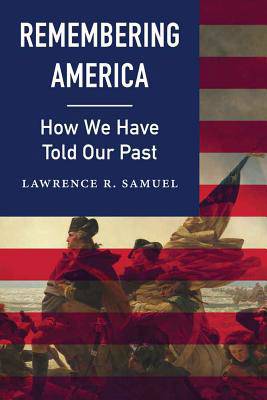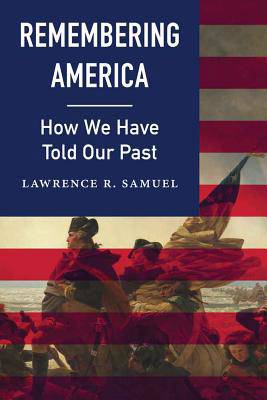
- Afhalen na 1 uur in een winkel met voorraad
- Gratis thuislevering in België vanaf € 30
- Ruim aanbod met 7 miljoen producten
- Afhalen na 1 uur in een winkel met voorraad
- Gratis thuislevering in België vanaf € 30
- Ruim aanbod met 7 miljoen producten
Zoeken
€ 41,95
+ 83 punten
Omschrijving
American history is ubiquitous, underscoring everything from food to travel to architecture and design. It is also emotionally charged, frequently crossing paths with political and legal issues. In Remembering America, Lawrence R. Samuel examines the place that American history has occupied within education and popular culture and how it has continually shaped and reflected our cultural values and national identity. The story of American history, Samuel explains, is not a straight line but rather one filled with twists and turns and ups and downs, its narrative path as winding as that of the United States as a whole. Organized around six distinct eras of American history ranging from the 1920s to the present, Samuel shows that our understanding of American history has often generated struggle and contention as ideologically opposed groups battled over ownership of the past. As women and minorities gained greater power and a louder voice in the national conversation, our perspectives on American history became significantly more multicultural, bringing race, gender, and class issues to the forefront. These new interpretations of our history helped to reshape our identity on both a national and an individual level. Samuel argues that the fight for ownership of our past, combined with how those owners have imparted history to our youth, crucially affects who we are. Our interpretation and expression of our country's past reflects how that self-identity has changed over the last one hundred years and created a strong sense of our collective history--one of the few things Americans all have in common.
Specificaties
Betrokkenen
- Auteur(s):
- Uitgeverij:
Inhoud
- Aantal bladzijden:
- 204
- Taal:
- Engels
Eigenschappen
- Productcode (EAN):
- 9780803254336
- Verschijningsdatum:
- 1/11/2015
- Uitvoering:
- Hardcover
- Formaat:
- Genaaid
- Afmetingen:
- 152 mm x 229 mm
- Gewicht:
- 462 g

Alleen bij Standaard Boekhandel
+ 83 punten op je klantenkaart van Standaard Boekhandel
Beoordelingen
We publiceren alleen reviews die voldoen aan de voorwaarden voor reviews. Bekijk onze voorwaarden voor reviews.







